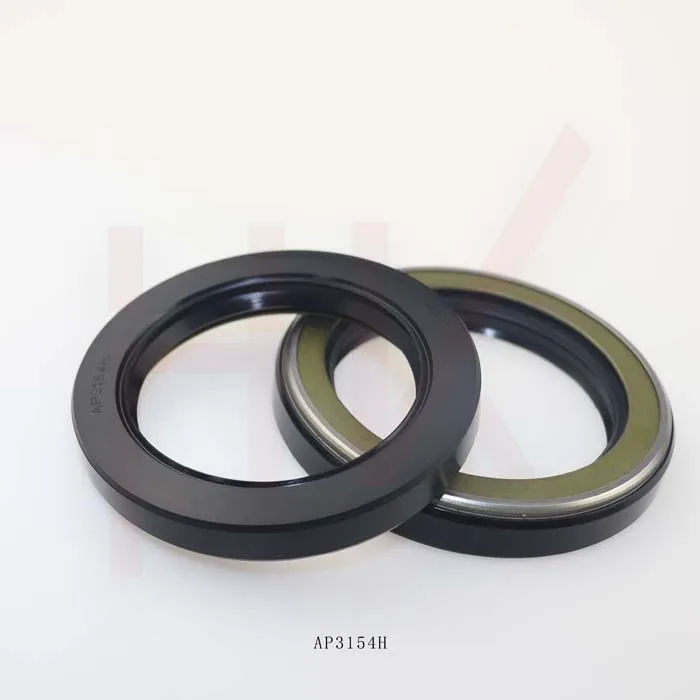Nov . 12, 2024 13:14 Back to list
oil seal kit
Understanding Oil Seal Kits Essential Components for Machinery Maintenance
In industrial operations and mechanical systems, the term oil seal may not often grab headlines, but it plays a crucial role in ensuring the longevity and efficiency of machinery. An oil seal kit is a collection of essential components designed to prevent the leakage of lubricants while keeping contaminants out of machinery, thereby maintaining the integrity of various mechanical systems. Understanding oil seal kits, their components, and their significance is vital for both operators and maintenance teams.
What Is an Oil Seal?
An oil seal, also known as a fluid seal or grease seal, is a device used to seal the junction between rotating and stationary parts, preventing the leakage of lubricating fluids. Typically made of rubber, polyurethane, or other synthetic materials, oil seals are engineered to handle high pressures, temperatures, and varying environmental conditions. They help to keep bearings and other critical machine parts lubricated, which reduces wear and tear and extends the lifespan of equipment.
The Importance of Oil Seal Kits
An oil seal kit consists of various components necessary for the installation and replacement of oil seals. These kits are essential for regular maintenance in many industries, including automotive, aerospace, manufacturing, and oil and gas. Properly functioning oil seals prevent oil leaks that can lead to mechanical failures, environmental contamination, and costly downtime.
1. Cost-Effectiveness Regular maintenance using oil seal kits can save organizations significant amounts of money. Replacing oil seals at scheduled intervals minimizes the risk of major breakdowns which can necessitate expensive repairs.
2. Safety Leaking oil can pose safety hazards. For instance, oil spills can cause slippery working conditions, leading to accidents. Ensuring that oil seals are functional helps maintain a safer work environment.
3. Environmental Compliance Many industries are subject to strict regulations regarding oil and fluid management. Utilizing oil seal kits helps organizations comply with environmental standards, preventing leaks and minimizing the ecological footprint.
Components of an Oil Seal Kit
An oil seal kit generally includes
- Oil Seals The main components designed to prevent fluid leaks. - O-Rings Used for additional sealing, especially in areas where two parts meet. - Grease Sometimes included to facilitate installation and enhance the performance of the seals. - Installation Tools Specific tools may be packaged with the kit to ensure correct installation without damaging the seals.
oil seal kit

Choosing the Right Oil Seal Kit
Selecting the right oil seal kit is crucial for optimal performance. Considerations include
- Compatibility Ensure the kit is compatible with the specific machinery and the fluids being used. Different applications may require different materials or seal designs. - Quality Invest in high-quality seals from reputable manufacturers to guarantee longevity and resilience against working conditions.
- Application Consider the specific application requirements; high-temperature operations may require seals rated for such environments, while harsh chemical exposure necessitates chemically resistant materials.
Maintenance Tips for Oil Seals
1. Routine Inspections Regularly check oil seals for wear and damage. Look for signs of leaking oil, which indicate that a seal may need replacement.
2. Proper Installation When installing oil seals, ensure that proper techniques and tools are used to avoid damaging the seals. Follow manufacturer guidelines for torque settings and installation procedures.
3. Temperature Management Monitor operating temperatures to ensure they remain within acceptable ranges for the specific seals used. Excessive heat can degrade seal materials over time.
4. Clean Environment Maintain a clean working environment to prevent contaminants from entering the machinery. Dust and debris can lead to premature seal failure.
Conclusion
In the world of machinery maintenance, oil seal kits play an underappreciated yet vital role. By preventing leakages, these kits not only enhance the performance and reliability of equipment but also contribute to safety and environmental compliance. For anyone involved in the maintenance of mechanical systems, understanding the significance of oil seal kits is essential for achieving operational efficiency and safeguarding against costly repairs. Ensuring that you have the right oil seal kit on hand can make all the difference in the smooth operation of machinery, keeping the wheels of industry turning efficiently.
-
Wiper Oil Seal: Our Commitment to Clean Hydraulics
NewsAug.13,2025
-
Hydraulic Oil Seal for Self Discharging Cars
NewsAug.13,2025
-
Hub Oil Seal for Agricultural Tractor Hubs
NewsAug.13,2025
-
Skeleton Oil Seal with NBR Material
NewsAug.13,2025
-
Rotary Lip Seal for High Pressure Applications
NewsAug.13,2025
-
Cylinder Seal Kits Our Legacy of Hydraulic Trust
NewsAug.13,2025
-
Unlocking the Potential of Hydraulic Systems with Essential Sealing Solutions
NewsAug.06,2025
Products categories
















